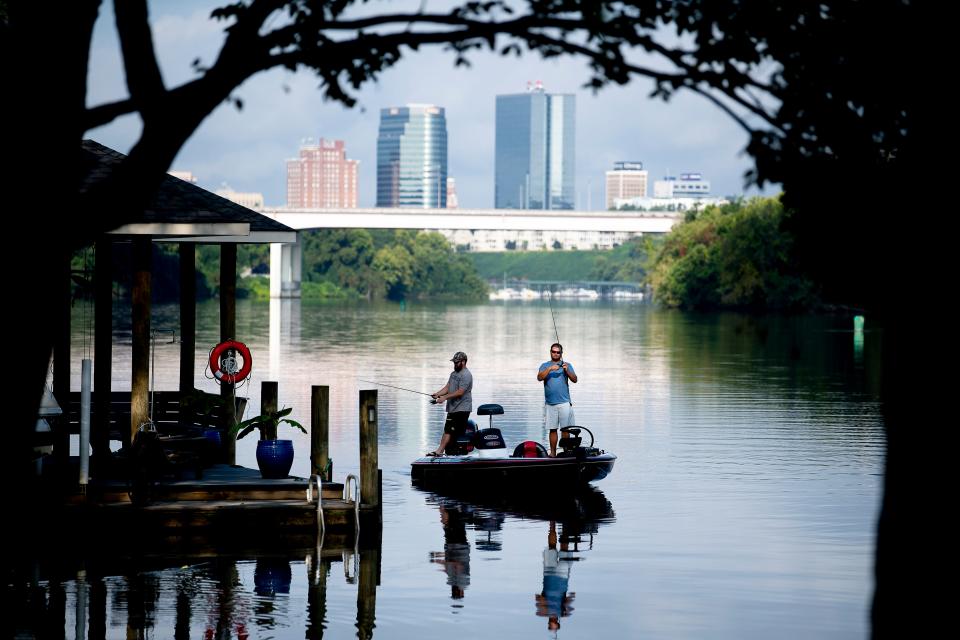Is downtown Knoxville on Fort Loudoun Lake or the Tennessee River? | Know Your Knox
The waterway running alongside downtown Knoxville is neither river nor lake − yet it's both at the same time.
It's alternately called Fort Loudoun Lake and the Tennessee River, though it's more accurately a reservoir.
John Schwartz, a University of Tennessee at Knoxville professor in the department of civil and environmental engineering, told Knox News the dam that creates the expanse of water could be causing confusion.
"Basically, a reservoir is a river that's been dammed," he said. "And I guess they'll generally call any stagnant body of water a lake, but naturally a lake is more like the Great Lakes that have been naturally formed."
Also, the water is not exactly stagnant, as Schwartz can see from his university office when water is flowing through the dam's floodgates.
The reservoir that forms Fort Loudoun Lake starts west of Knoxville in Lenoir City at the Fort Loudoun Dam, which controls winter and summer water elevations. The dam backs up the water to the east, Schwartz said, and the reservoir ends near Ijams Nature Center in South Knoxville.
The Tennessee River starts near Ijams at the confluence of the Holston and French Broad rivers and flows west through the reservoir. Ultimately, the river's meandering route takes it southwest into Alabama, then northwest across a tiny corner of Mississippi before it veers sharply north across Tennessee again and into Kentucky, where it discharges into the Ohio River.
How well do you Know Your Knox? We answer the questions you really want to know
Knoxville lakefront real estate theory doesn't add up
Despite some theories in the Knox News office, the lake vs. river debate does not appear connected to real estate and the lust for lakefront property instead of riverfront.

While bragging rights might change depending on what the body of water is called, the financial difference between lakefront or riverfront is nominal. Lakefront properties can add 25% in price to their value, according to upnest.com, while riverfront homes can add 24% to their value.
If George Strait could find you some oceanfront property in Tennessee, you'd be in luck. Properties on the ocean are valued 45% higher than their non-ocean counterparts in the same ZIP code, according to UpNest.
Know Your Knox answers your burning questions about life in Knoxville. Want your question answered? Email knowyourknox@knoxnews.com.
Ryan Wilusz is a downtown growth and development reporter. Phone 865-317-5138. Email ryan.wilusz@knoxnews.com. Instagram @knoxscruff.
Support strong local journalism by subscribing at knoxnews.com/subscribe.
This article originally appeared on Knoxville News Sentinel: Is downtown Knoxville on the Tennessee River or Fort Loudoun Lake?

